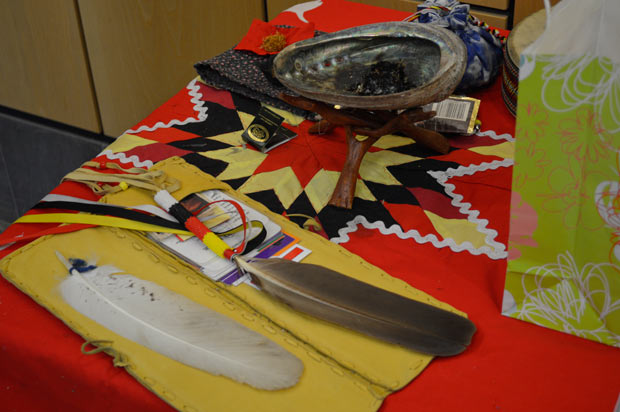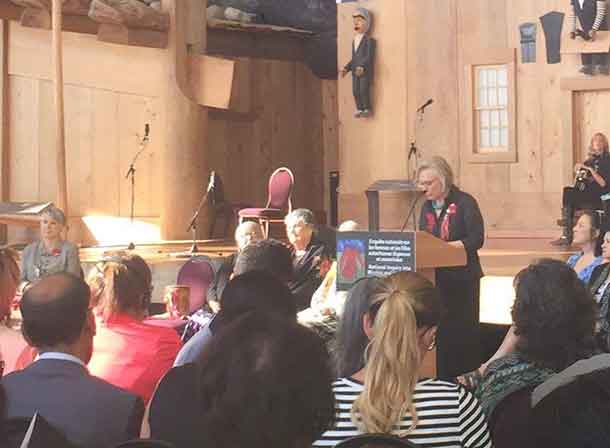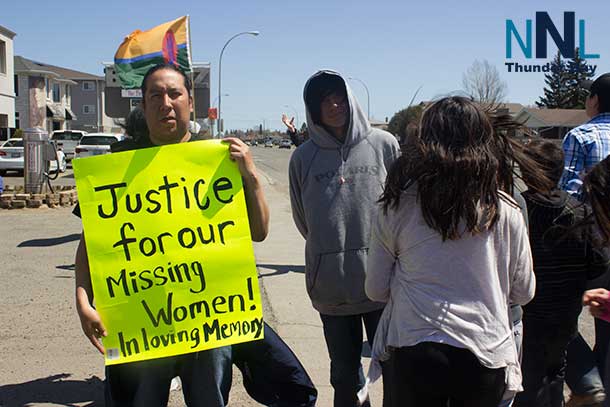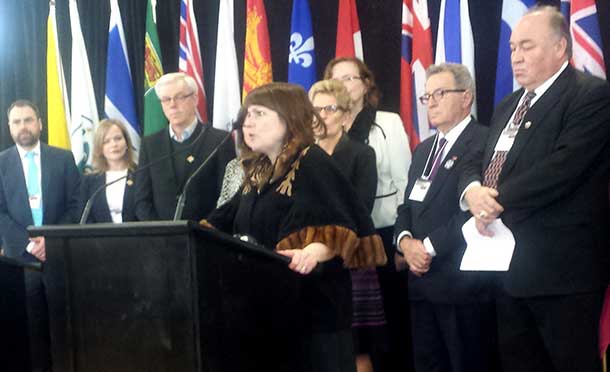
THUNDER BAY – “We want to hear from Canadians on this issue of national significance. I encourage everyone to read the discussion guide and participate in this process via the online survey. We need to hear from all Canadians – especially survivors, families and loved ones, Indigenous organizations, and provinces and territories – to help us identify the best process for this inquiry,” stated Carolyn Bennett, Minister of Indigenous and Northern Affairs.
Minister Bennett’s comments come as the pre-inquiry meetings start in Thunder Bay. These meetings are an opportunity for the people impacted by the deaths of their loved ones to speak out, and to help to form the basis for the National Inquiry into Murdered and Missing Indigenous Women and Girls. At Orientation sessions at the Victoria Inn in Thunder Bay yesterday there was a lot of emotion in the room, and a number of people who expressed the deep and still unhealed hurt that they still struggle with each and every day after their loved ones were murdered or are missing.
Federal Ministers and their staff along with support workers from NAN, Dilico and other groups are attending the day long session at the Victoria Inn in Thunder Bay.
As part of its commitment to an inclusive and respectful engagement process, the Government of Canada announced the launch of an online survey to inform the design of the inquiry into missing and murdered Indigenous women and girls.
#MMIW Inquiry Must Expose Root Causes – Minister Hajdu
“We must design an inquiry that both exposes the root causes of violence against Indigenous women and girls and leads to concrete actions to prevent future violence. Engaging meaningfully with people from across the country is an important first step in that process,” shared Thunder Bay Superior North MP Patty Hajdu, Minister of Status of Women.
Building on the input gathered from the engagement sessions being held across Canada, this online survey will allow survivors, family members, loved ones of victims, front-line service providers and others the opportunity to provide input into who should conduct the inquiry, its timeframe, who should be heard as part of the inquiry process, and what issues should be considered.
A discussion guide also has been developed and is now available online. The guide is also being used at engagement sessions to help focus discussions by highlighting important elements and key questions for consideration and providing additional information.
Summaries from the pre-inquiry design sessions will be posted online and, once the engagement process is complete, a final summary of what was heard during the sessions and through the online survey will be posted online.
“The Government of Canada believes that an inquiry into missing and murdered Indigenous women and girls can only be designed after hearing from those directly affected. We are committed to an inclusive and respectful engagement process which incorporates the viewpoints and perspectives of those impacted by this national tragedy,” concluded Jody Wilson-Raybould, Minister of Justice and Attorney General of Canada.
Quick facts
- On December 8, 2015, the Government of Canada announced the launch of a national inquiry to address the high number of missing and murdered Indigenous women and girls.
- The Government is currently engaging with survivors, family members and other loved ones, as well as National Aboriginal Organizations, provincial and territorial representatives, and front-line workers to seek their views on the design and scope of the inquiry.
- Indigenous women and girls in Canada experience higher rates of violence than non-Indigenous women and girls in Canada.
- Although Indigenous women make up 4 per cent of Canada’s female population,16 per cent of all women murdered in Canada between 1980 and 2012 were Indigenous women. Indigenous women are 3 times more likely to report experiencing violence.
#MMIW





